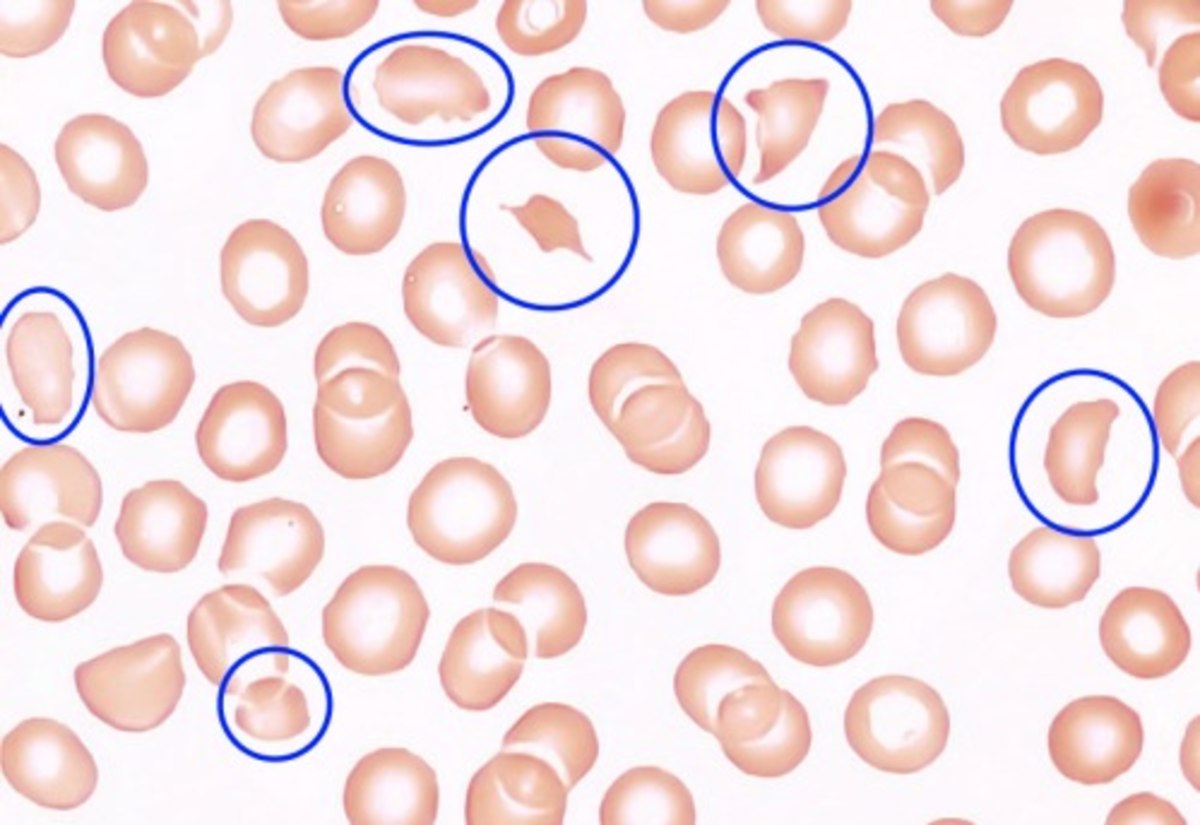Congenital Thrombotic Thrombocytopenic Purpura

Congenital thrombotic thrombocytopenic purpura (congenital TTP) is a blood disorder in which blood clots form in the small blood vessels throughout the body. Signs and symptoms typically develop in infancy or early childhood, but in some cases they do not develop until adulthood, particularly during pregnancy in women or after an infection or vaccination. Signs and symptoms generally are due to hemolytic anemia, low platelets (thrombocytopenia), and neurologic dysfunction. Symptoms of anemia can include fatigue, paleness, jaundice, shortness of breath, and a rapid heart rate. Widespread thrombosis (abnormal clotting) can lead to problems with the nervous system (such as personality changes, headaches, confusion, and seizures), abnormal kidney function, heart problems, and gastrointestinal problems. Signs and symptoms often recur on a regular basis but the severity and frequency varies.
Congenital TTP is caused by changes (mutations) in the ADAMTS13 gene and inheritance is autosomal recessive. Treatment may involve plasma exchange (also called plasmapheresis) for acute episodes, and prophylactic plasma therapy for those with chronic disease. Women with congenital TTP should receive pregnancy counseling in order to prepare for management during pregnancy. Regular plasma infusions are needed during pregnancy, in addition to close monitoring. Most people respond well to treatment, which can prevent long-term organ complications due to relapses. However, life expectancy largely depends on severity and whether other underlying conditions are present. Without treatment, congenital TTP is fatal.
Congenital TTP is caused by changes (mutations) in the ADAMTS13 gene and inheritance is autosomal recessive. Treatment may involve plasma exchange (also called plasmapheresis) for acute episodes, and prophylactic plasma therapy for those with chronic disease. Women with congenital TTP should receive pregnancy counseling in order to prepare for management during pregnancy. Regular plasma infusions are needed during pregnancy, in addition to close monitoring. Most people respond well to treatment, which can prevent long-term organ complications due to relapses. However, life expectancy largely depends on severity and whether other underlying conditions are present. Without treatment, congenital TTP is fatal.